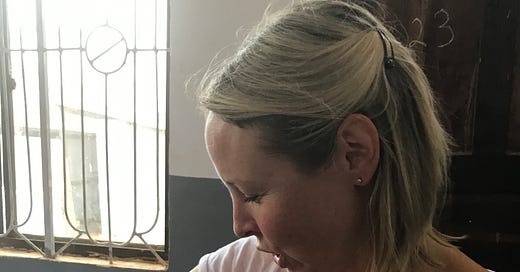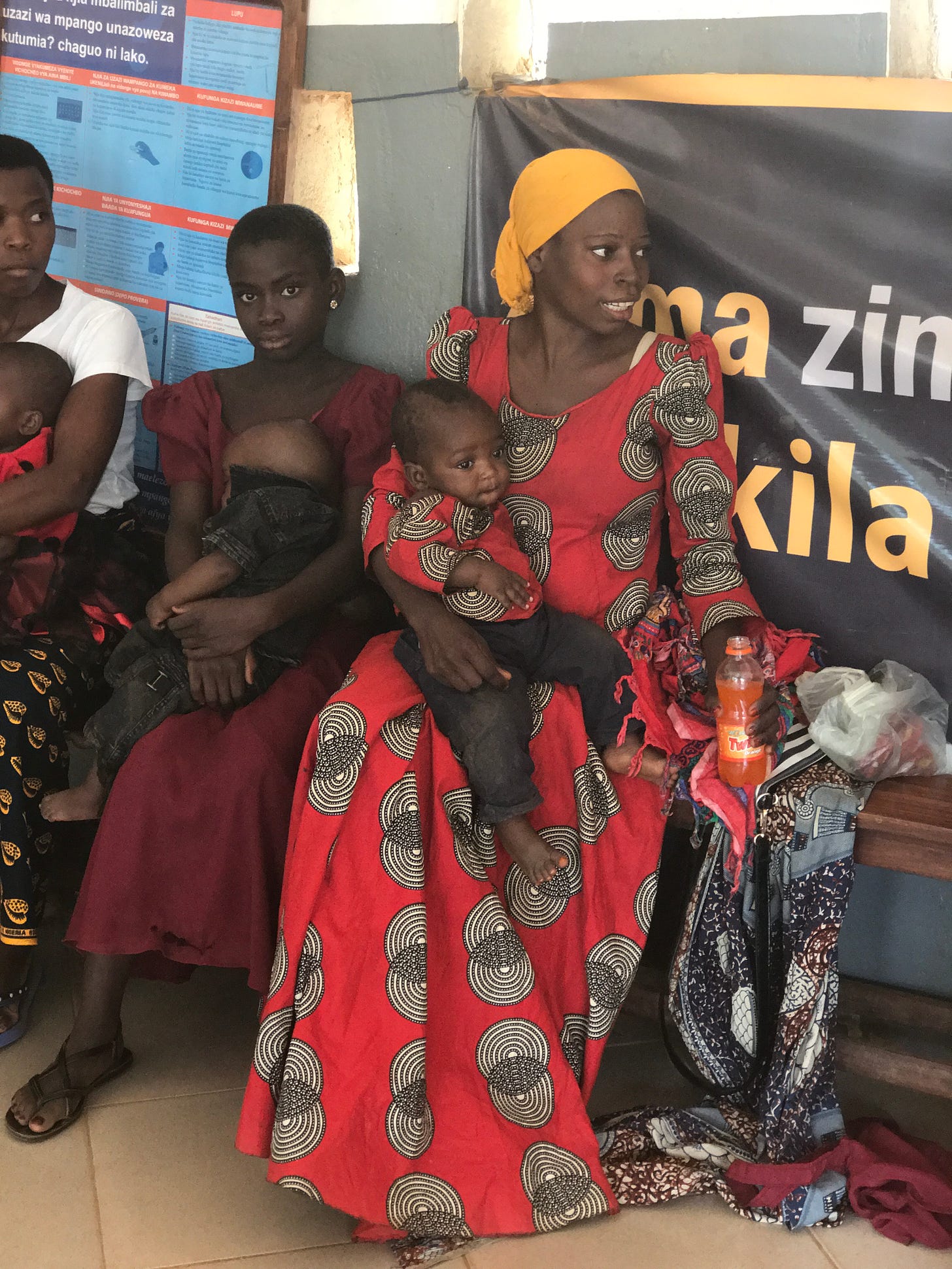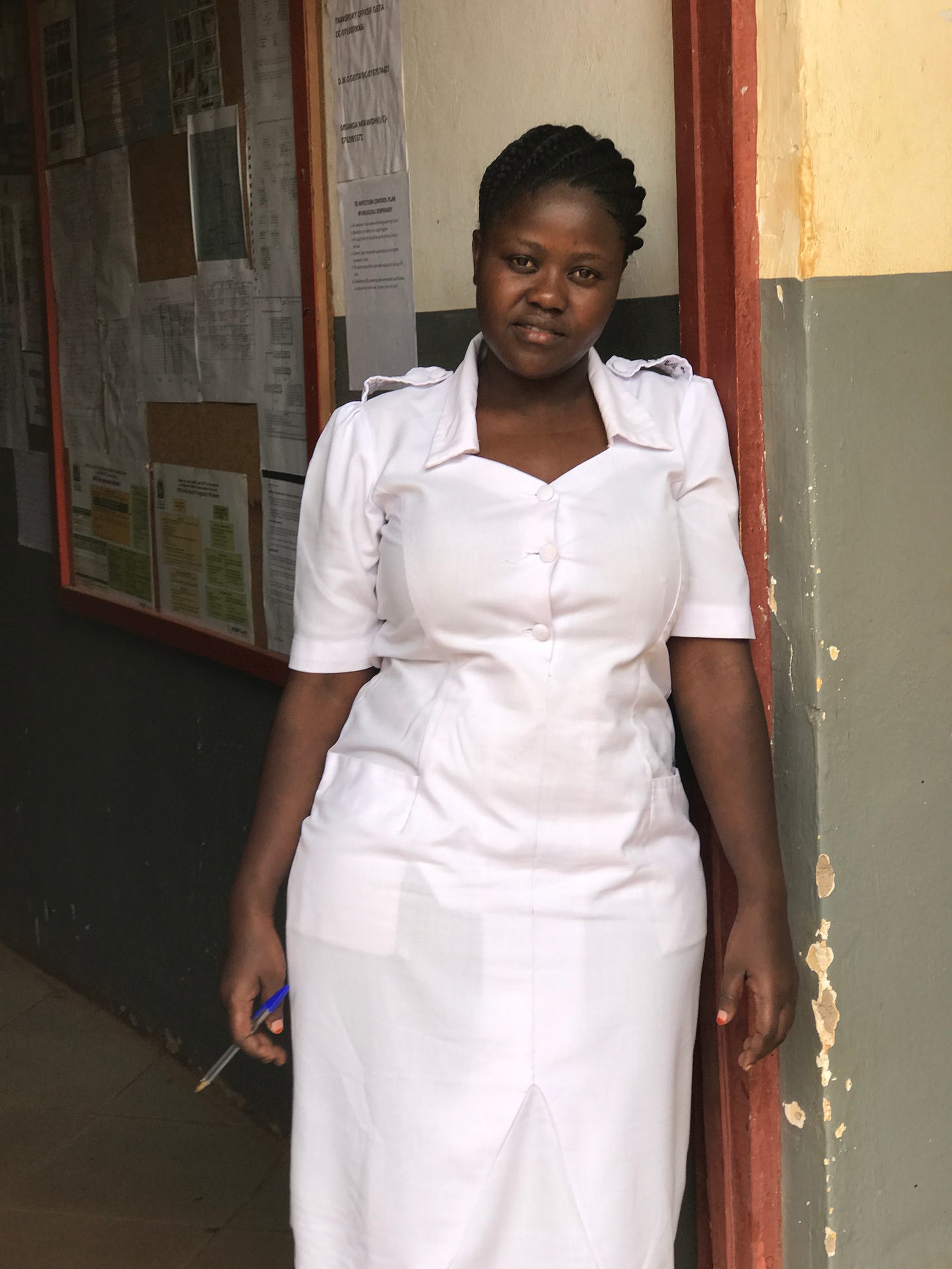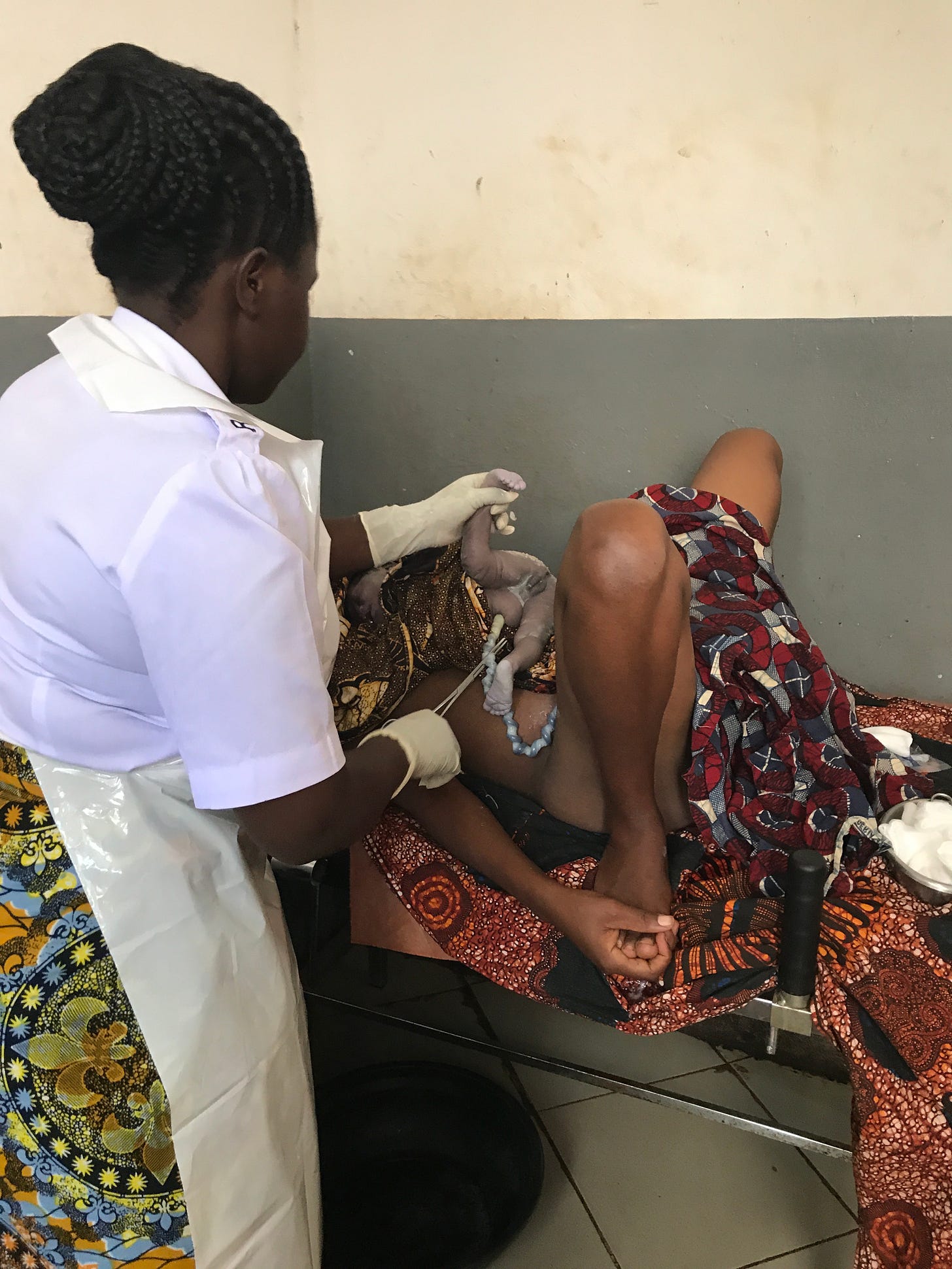A few years ago the Guardian flew me to rural north-west Tanzania to watch women giving birth without running water or electricity. The story was co-funded funded by the charity WaterAid and the Bill and Melinda Gates foundation. In order get to the clinic I had to take two planes, two buses, and a ferry across Lake Victoria, a vast body of fresh water cupped by mountains that connects Tanzania with Uganda to the north.
The birth centre was in a rural mining area, there was nothing around for miles but you could hear the distant hum of heavy industry. The men who didn’t work at the mine languished under trees drinking moonshine. The women gathered firewood and water, carrying both balanced on their heads in long tireless. I had been to many other countries in Africa and seen the same thing — the drowsing men, the walking women carrying their burdens. Tanzania was the same, only poorer.
The medical clinic and birth centre consisted of two scarcely furnished cinder block buildings perched on a dusty hill in jacaranda thicket. For three days I hung around chatting with the patients, all of them mothers. Most had walked barefoot for several miles or even days at a time, carrying toddlers and babies, to visit the monthly immunisation clinic, which administered hundreds of MMR booster shots each day.
The mothers had seriously dressed up for the occasion, every single one of them looked smashing. A few had even kitted their babies and toddlers to match. I complimented them lavishly then pulled up the latest Boden catalogue on my iPhone, which they thought was hilarious.
The birth centre was in a separate cinderblock building. An air of Church-like seriousness hung about the place; as soon as I entered I missed the jolly cocktail party atmosphere of the clinic. Unlike the clattery overlit chaos of the NHS maternity ward where I’d given birth to my own two sons it was eerily quiet, a series of small gloomy rooms furnished with bare metal gurneys connected by a breezeway. There was one nice room, nice because it had with both a window and a bed with a mattress. This was where mothers were allowed the luxury resting with their newborns for a couple of hours after giving birth — but only if they’d brought water and an aunty to clean up for them. Most of the time it was empty.
If a woman howls repeatedly during birth in rural Tanzania, I soon learned, it’s either a very young first-timer (you can tell by the way everyone rolls their eyes) or very bad fucking news. Because of this there was a tacit code of mafioso-like silence among the birthing women. They prided themselves on STFU in Labour the way my London friends prided ourselves on not cussing out our useless idiot husbands or forgoing drugs or ‘working with’ our private doulas. And unlike us the majority of the Tanzanian women actually succeeded in executing their birth plans. The ones who didn’t had excellent excuses.
The night before I arrived the duty midwife told me a woman had failed to deliver her second (breach) twin and had to wait, bleeding heavily, with the infant’s leg sticking out of her vagina, to be loaded onto a Red Cross vehicle then driven hours on a bumpy unlit dirt road to the nearest hospital. When I asked if everything turned okay the midwife shrugged and left it at that. The labouring women arrived at the clinic intermittently, some were alone but most were accompanied by an “aunty” (customarily their mother’s youngest sister). Men did not come near the place. The few husbands or brothers who delivered labouring women on scooters, parked well back from the centre then drove off immediately in a cloud of dust. The majority of the labouring women arrived on foot, having walked through hours of contractions. They streamed in one after another, silent and often staggering under the weight of large jerry cans of muddy water they carried with their aunties on sticks across their backs — the price of admission for a medical birth.
Three midwives took turns delivering infants on twenty-four hour shifts. They were cheerful and efficient, working relentlessly without stopping to eat or drink, their wartime white nurses uniforms were always miraculously unsoiled. They delivered baby after baby singlehandedly, without the help of sterilised implements, plumbing or lights. At night they caught babies by feel or by phone light. There was very little talking or coddling. They saved their energy for encouraging the women with the pushing at the crucial moment, when it mattered. The only thing they cared about was the outcome.
With the help of a translator, I befriended Eva, a 23-year-old woman pregnant with her fourth child. In between agonising contractions she told me her other labours were faster. She was worried there was something wrong with this baby, her fourth.
Eva’s aunty and I took turns bringing her tin mugs of warm sweet tea as she paced outdoors, leaning against the jacaranda trees, lowing and moaning. Sweat beading off her face as she breathed through the pain, waiting for her time in the birth room.
After nearly 40 hours of labour, the midwife examined Eva brusquely and said it was ‘time.’ She invited me to assist as all the other sisters were busy. I asked Eva if it was alright but she was beyond hearing. In the birth room the midwife manovered Eva onto the table as I watched from the corner, feeling a quite useless, not that it mattered — from the practiced choreography of their movements I understood both women knew exactly what they were doing. It felt a bit like being on a porn shoot.
After a few minutes a matted head bloomed in Eva’s vulva. The sight was terrifying and beautiful; like watching the eye of a sleeping giant slowly open. After a three epic pushes, the baby shot out of her into the midwife’s gloved hands, gush of blood and amniotic fluid followed it, splattering everything. The midwife held slippery little thing by the head with one hand and cleared its nostrils with the other, which caused it to grizzle.
A girl, said the midwife, first in Swahili, then English for my benefit.
I’d given birth twice already myself and watched plenty others on YouTube but none of it prepared for the live spectacle. I was dumbstruck, tearful, like an astronaut glimpsing Earth through the porthole of the space station. You can study all the biology and astronomy you want but until you see your own home as a distant sphere in a void or one person coming out of the body of another, you don’t actually believe it. The midwife laid the baby face down on an Eva’s stomach, clipped the cord, then handed me the newborn. I wrapped her up in a cloth, then presented her Eva, who smiled blearily at her daughter but did not reach for her.
‘Let her rest,’ the midwife said, waving me away. ‘She’ll have plenty of time to hold her on the walk home.’
I turned to Eva’s aunty thinking she’d want to hold her niece, but she was already head-down, busy mopping up the birth room. I watched as she tipped over the last jerry can, sluicing the bloodied floor with the muddy water so it mixed to the colour of rust, then I tip-toed into the hall. The baby’s eyes were closed, like domed kitten-slits, she sniffled. Her fingers were long and thin, they worried at the edge of the swaddling cloth like tentacles. I tried to think of something welcoming to say that wasn’t just ‘welcome,’ but I didn’t want to offer false promises. I decided to level with her.
Keep reading with a 7-day free trial
Subscribe to Juvenescence with Leah McLaren to keep reading this post and get 7 days of free access to the full post archives.








